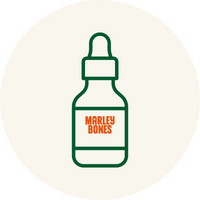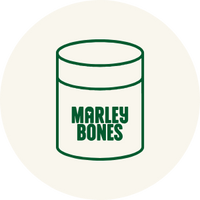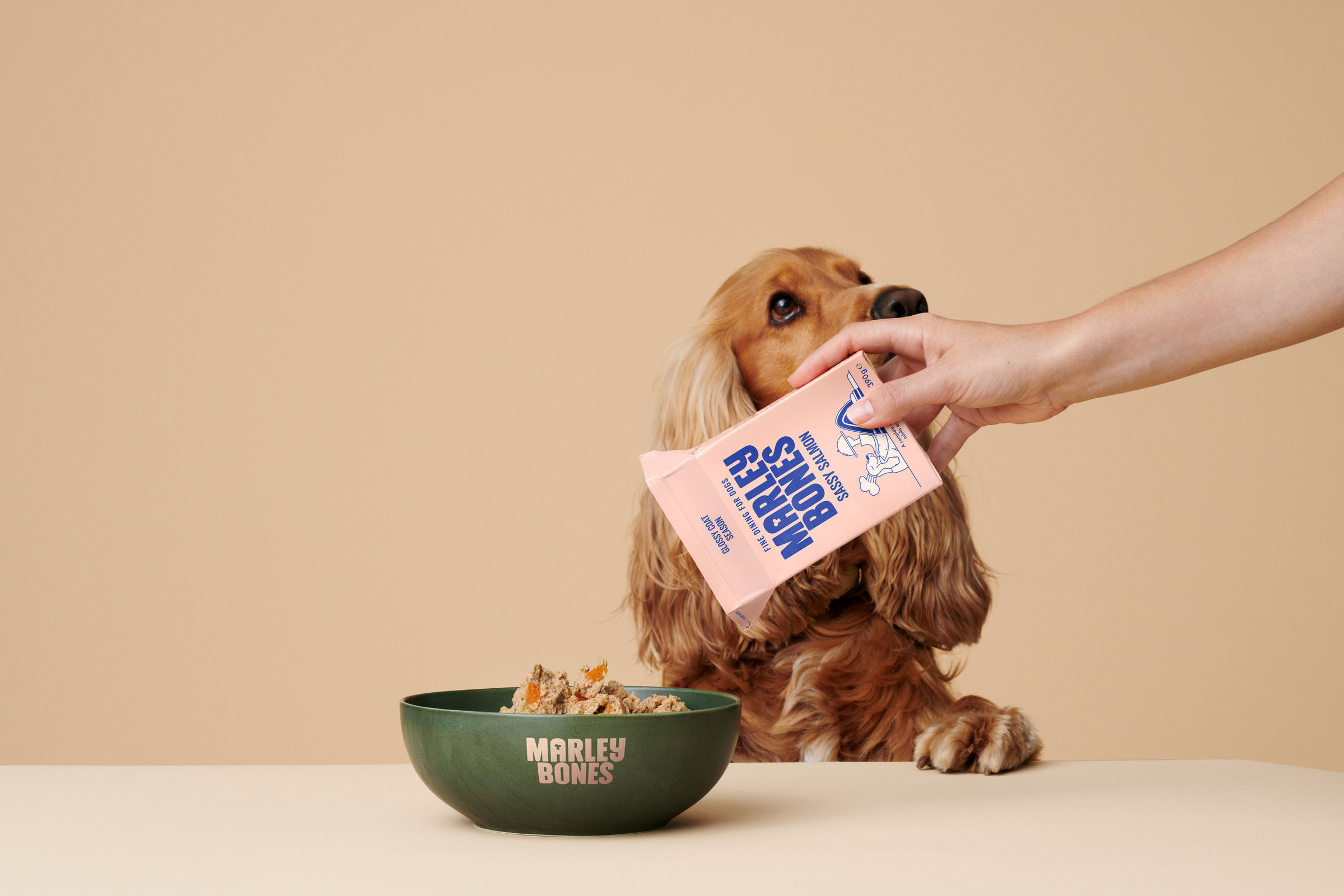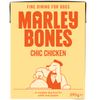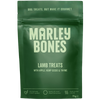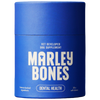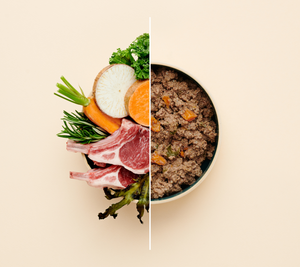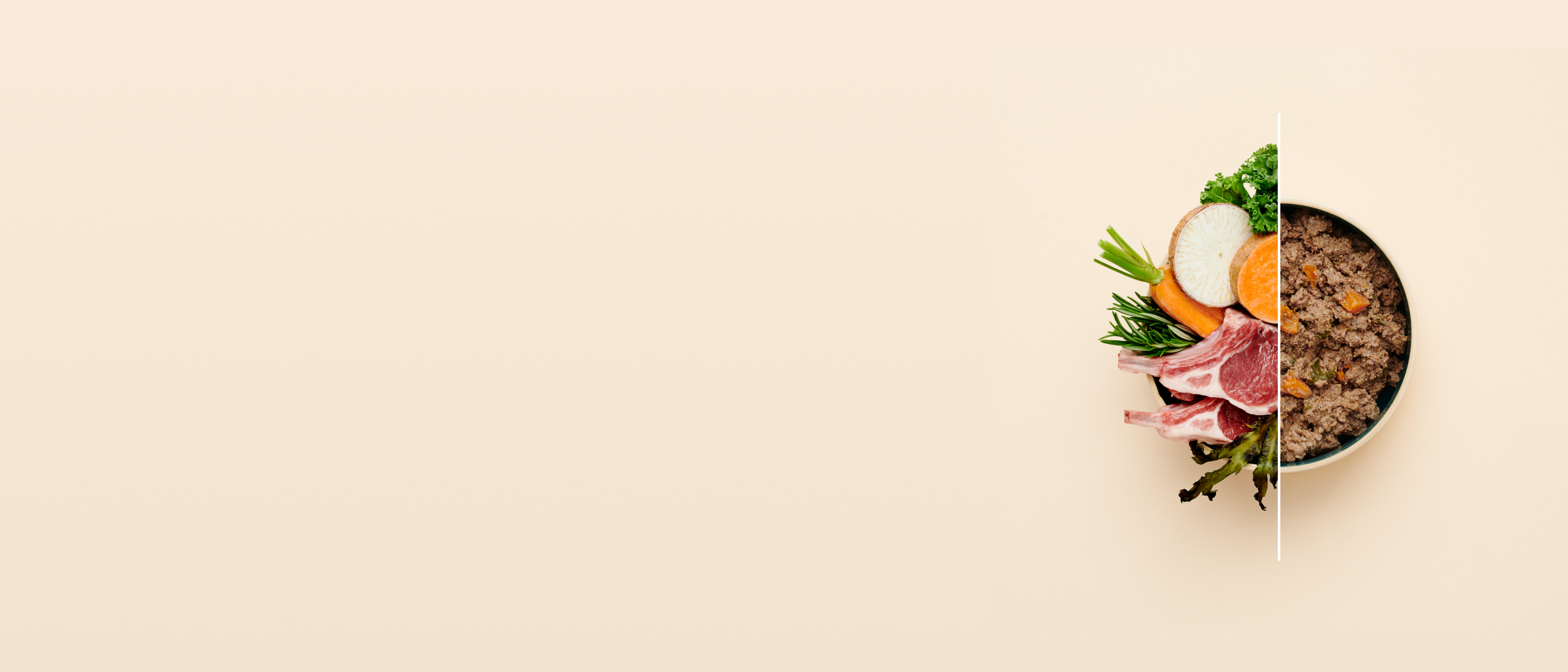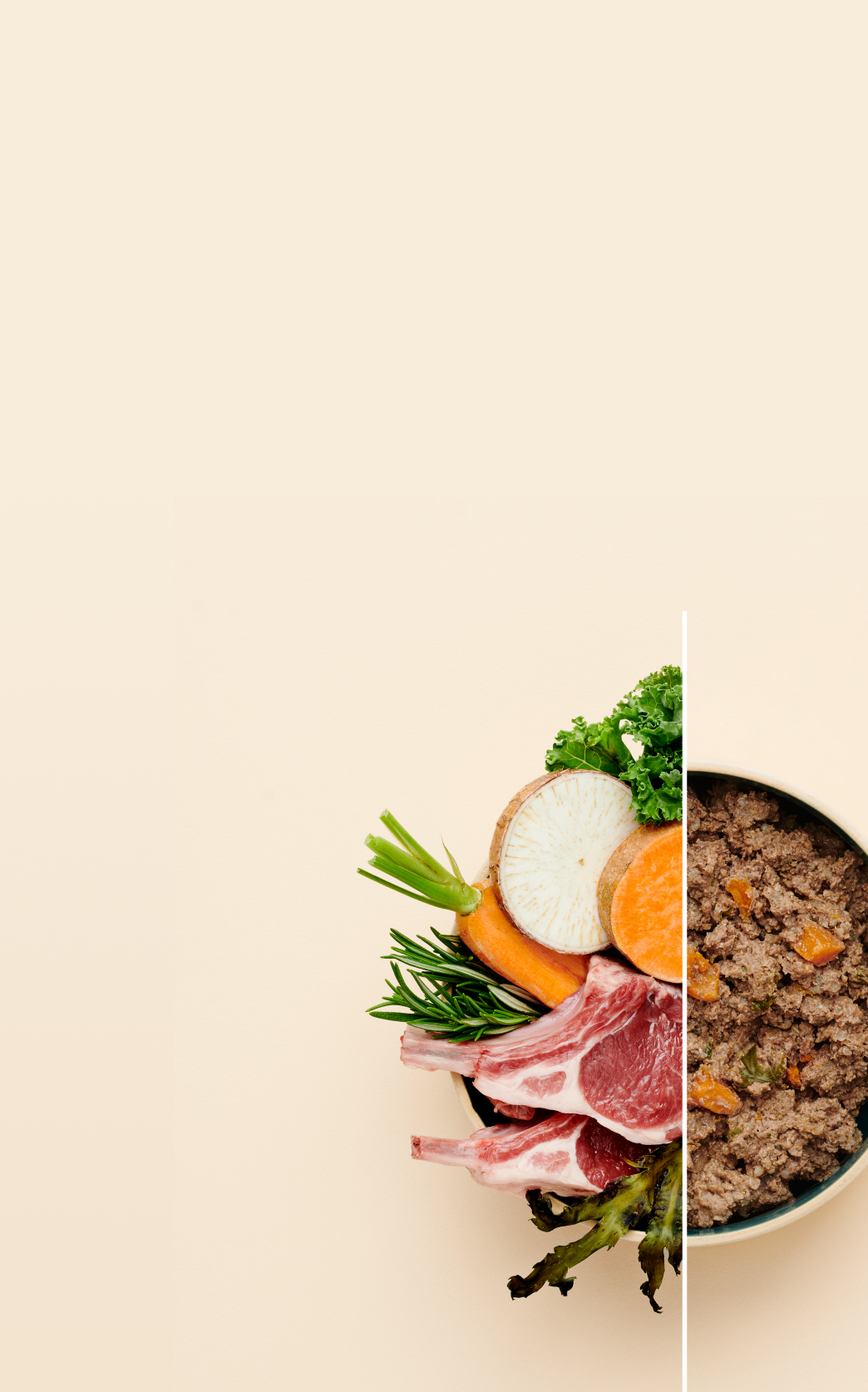The Key Role of Fibre in Your Dog’s Diet: How Much, What Kind, and From Which Sources?
Fibre plays a crucial role in your dog’s overall health, particularly when it comes to digestion, gut balance, and weight management. Just like in humans, the right level and type of fibre in a dog’s diet can make all the difference to how their body processes food, absorbs nutrients, and eliminates waste.
Incorporating high-fibre foods into your dog’s meals can help regulate bowel movements, support the gut microbiome, and keep your dog feeling fuller for longer — ideal if you’re managing weight or dealing with digestive sensitivities.
But not all fibre is the same. Understanding the difference between soluble and insoluble fibre, and how they interact with your dog’s unique needs, is essential for optimising their wellbeing.
This article has been vet-reviewed by veterinary nutritionist Dr Davide Stefanutti (DVM, PhD) to ensure clinical accuracy and relevance.
Why Fibre Matters In A Dog's Diet?
Fibre supports more than just regularity. Soluble fibre dissolves in water and can be fermented in the large intestine by beneficial gut bacteria, creating short-chain fatty acids (SCFAs) — compounds known for their anti-inflammatory effects and gut-healing properties. This is particularly helpful for dogs with inflammatory bowel disease (IBD) or sensitive stomachs.
Insoluble fibre, on the other hand, doesn’t dissolve in water and helps bulk up stool, speeding up intestinal transit and preventing constipation. Both forms of fibre contribute to healthy digestion, nutrient absorption, and stable blood sugar levels.
When carefully balanced, dietary fibre can:
- Improve stool quality
- Support a healthy gut microbiome
- Enhance satiety and reduce overeating
- Aid weight control
- Contribute to healthy blood sugar regulation

Fibre-Rich Foods for Dogs: Best Natural Sources
Many whole foods naturally contain the types of fibre your dog needs. Including these in your dog’s diet — or choosing fresh cooked dog food already containing them — can improve digestive health without the need for overly processed additives.
Top sources of soluble fibre include:
- Pumpkin
- Carrots
- Oats
- Chia seeds
- Flaxseeds
- Psyllium husk
- Sweet potatoes
- Apples (without seeds)
Great sources of insoluble fibre include:
- Broccoli
- Green vegetables
- Brown rice
- Sunflower seeds
- Whole grains
- Nuts (in moderation and only dog-safe varieties)
Balanced, gently cooked meals — like those offered by Marleybones — often already contain these functional ingredients, forming a natural base for fibre intake without needing to rely on synthetic fillers.
How Much Fibre Does Your Dog Need?
There is no universal guideline for how much fibre every dog should eat. Breed, size, age, health status, and activity level all play a role. Some dogs tolerate higher levels well, while others may need only a modest increase to feel the benefit.
According to Davide Stefanutti, DVM, PhD: “It is very important to consult your vet to establish the right fibre intake for your dog. Especially in dogs with gut health issues, fibre intake is one of the key variables to consider... A gradual introduction of fibre-rich foods is recommended to assess tolerability.”
As a rule of thumb, start small, especially when introducing high-fibre foods or supplements. Adjust based on your dog’s stool quality, energy, and appetite.

Choosing the Right Fibre Supplement for Your Dog
Not all dogs will get enough fibre from food alone — particularly those with sensitive stomachs, loose stools, or appetite regulation challenges. In these cases, a targeted fibre supplement can be a valuable addition.
When choosing a supplement, consider your dog’s specific needs:
- Soluble fibre aids digestion, slows glucose absorption, and promotes beneficial gut bacteria. Sources include psyllium, pumpkin, and apple pomace.
- Insoluble fibre improves stool consistency and promotes bowel regularity. Look for linseed, fruit pomace, and vegetable fibres.
It’s also important to select supplements made from high-quality, natural ingredients. Transparency of sourcing and clear labelling are must-haves. Always introduce new supplements slowly and observe how your dog responds.
Why Marleybones Gut Health Supplement Makes a Difference
For owners seeking a convenient, well-balanced way to boost fibre intake, the Marleybones Gut Health Supplement offers a carefully formulated blend of soluble and insoluble fibre tailored to support canine digestion.
Made with science-backed ingredients like:
- Pumpkin
- Psyllium husk
- Apple pomace
- Linseed
…it’s designed to complement Marleybones’ fresh-cooked meals, which already provide a strong base of fibre through chicory, chia seeds, broccoli, carrots, and sweet potatoes. The result is a digestive system supported from both ends: natural daily nutrition plus targeted gut support — all in a format that’s easy to serve and gentle on sensitive stomachs.
Whether you're managing a sensitive tummy or simply promoting long-term wellness, pairing a fresh food base with the right fibre supplement helps you create a well-rounded, nutrient-rich diet.

The Final Woof
Fibre plays a vital role in supporting your dog’s digestion, weight, and overall health — but it’s not a one-size-fits-all solution. Understanding the types of fibre, where to find them, and how your dog responds is key to long-term gut health.
For the best results, combine natural, fibre-rich foods with a tailored supplement like the Marleybones Gut Health Supplement, and work with your vet to assess your dog’s specific needs. With the right choices, you’ll be setting your dog up for a lifetime of strong digestion and vibrant wellbeing — inside and out.



